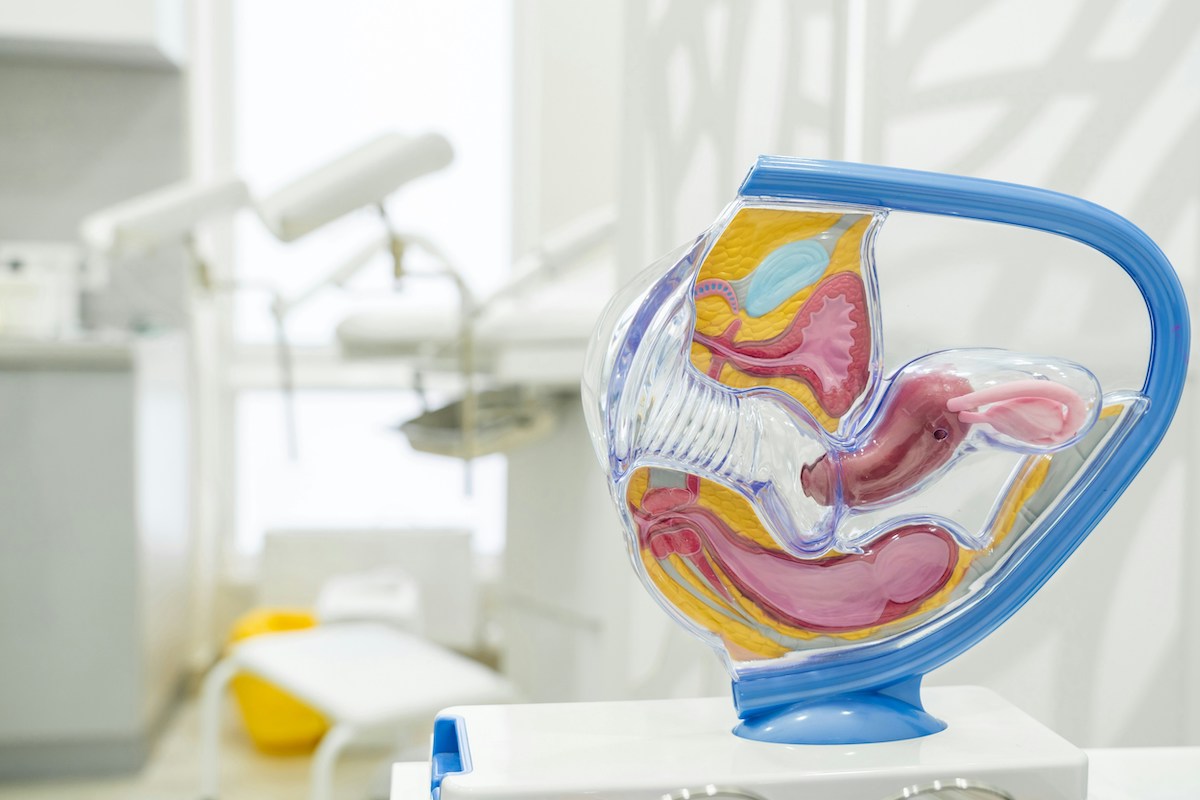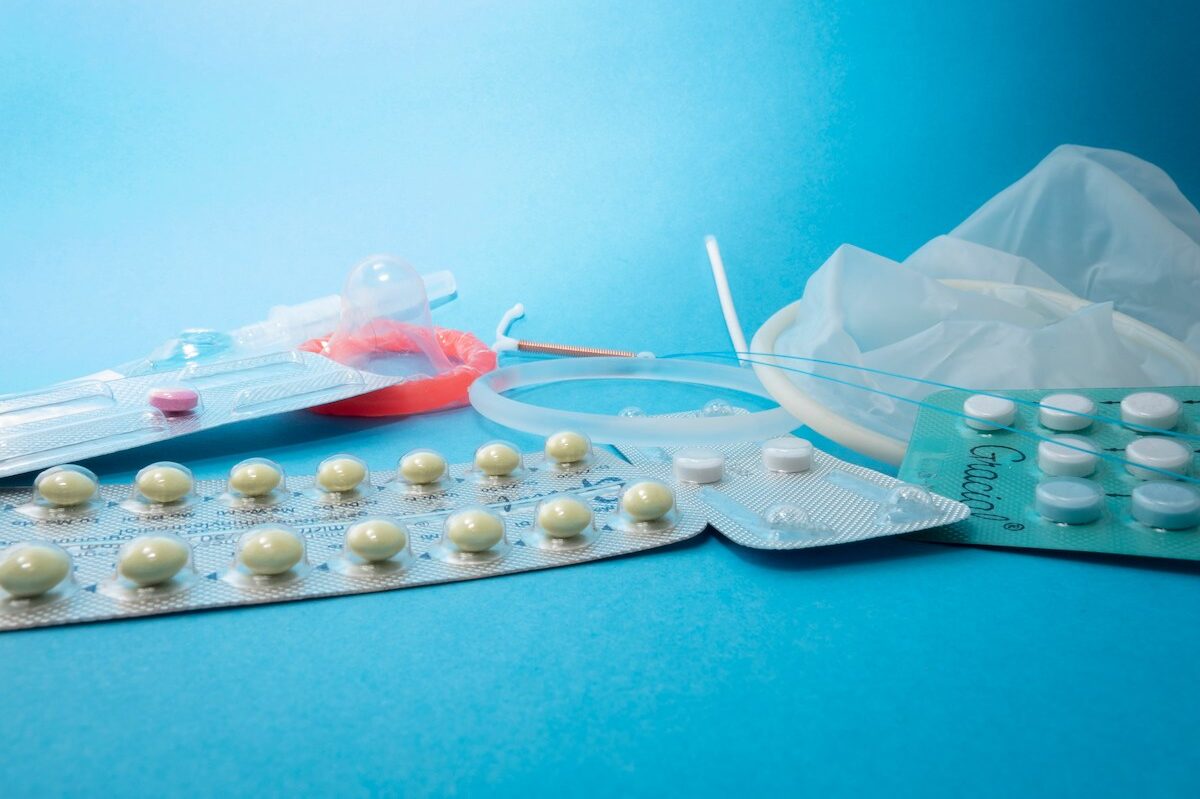In January, ParentData launched a new newsletter — Hot Flash — authored by Dr. Gillian Goddard. Hot Flash covers women’s health in the post-reproductive years. Think perimenopause and menopause, but also the late reproductive years, when you’re done having children but still, technically, might be able to do so. This week in Hot Flash, Gillian wrote about birth control at this stage — how do you think about birth control when you know it’s forever? And today on the podcast, we’re going to talk about that very topic. As you’ll be able to tell if you listen, I am a huge fan of Gillian and I always learn a lot from her. Enjoy!
To spark your interest, here are three highlights from the conversation:
Can you still get pregnant during perimenopause?
And so you really need to think about contraception as being something you have to continue to use until you’re in menopause, because if you can ovulate, it’s possible for that egg to get fertilized and for that fertilized egg to implant in your uterus. And remember, by the time we’re approaching menopause, the eggs that we’re ovulating are the last on the bench.
They’re not always the best-quality eggs. They can often have chromosomal abnormalities. And so not only can they be fertilized and you can conceive, but then you can also miscarry. So that’s not a very pleasant experience, and it’s also hard on our bodies.
Do birth control pills increase the risk of cancer?
In that situation, you would want to avoid birth control pills. But for the rest of us, there really isn’t an increased cancer risk. And in fact, there is some evidence — and this is newer in developing — that because they prevent ovulation, there may be some benefit from an ovarian-cancer-risk perspective.
If you’re someone who has really heavy periods or symptoms like endometriosis, those women often do very well with birth control pills. And even women who are in the late-reproductive phase who are having frequent periods, lots of headaches, lots of symptoms, night sweats. Taking a birth control pill continuously can be a great option in that situation as well.
Why isn’t vasectomy a more popular form of contraception?
And I do think that there’s a fair amount of myth-busting that’s going on and allowing that to happen. I also think that men are realizing that women have taken on a lot of responsibility for contraception, and there are no reversible forms of male contraception other than condoms. I mean, I spent 15 years managing the contraception for my husband and I as a couple and we had another 13 or more years to go.
Full transcript
This transcript was automatically generated and may contain small errors.
So I write a lot about pregnancy and people with little kids. And so sometimes when I meet people, they forget that my kids are old, my daughter is 12, my son is eight, and I am in, as I like to say, the upper part of the first half of my 40s, which is like your early 40s but later than that. And one day, about maybe six months ago, I woke up and I’m just going to say it, my nipples really hurt and I totally freaked out.
And I’m going to tell you why, which is the last time they felt like that was when I was pregnant with my son. And so I snuck out to the CVS and I bought a pregnancy test and it was negative. And I know for many people, it would be exciting to have another baby, but I’m uninterested in having any more kids. I love my kids. Two is good. And I was so relieved that the pregnancy test was negative. I was so relieved that I took a second one, also negative, just to be very sure.
But the thing is that my nipples were still hurting, and then my boobs started hurting, both of them. Very painful. And I was like, “What is going on here?” And around the same time, over at ParentData, we were interested in expanding out from pregnancy and early childhood into other parts of women’s health, into other parts of the fertility and reproductive journey. And a few days after this boob situation, I found myself on the phone with Gillian Goddard, talking to her about writing a newsletter for ParentData on perimenopause and on menopause. And I knew what I had to ask her, which was personally, why do my boobs hurt? I used the interview as, let’s say, a personal doctor counseling session.
And the reason that I knew Gillian would be perfect for writing and perfect to talk to about this, is that she was great. She didn’t flinch at the fact that in a professional interview I was trying to get answers to my personal health problems. And she was able to give me the answer, which was in short, that as I’m aging, my body really needs to ramp things up a lot to try to squeeze out those last low quality eggs. And her answer was more technical than that, but what I took away was that everything is more or less fine, more or less in the sense that there was nothing wrong, but also was an indication that the next few years aren’t going to be the relaxed, premenopausal lull that I thought. But in fact, a variety of hormonal changes are still going on, and there’s a lot of stuff that maybe I don’t know about.
So Gillian is now writing a newsletter for ParentData, which is all about the post-reproductive years, about perimenopause and menopause. And today I’ve got her on the podcast to talk about one very specific question, which is long-term birth control. You’re done having your last kid. What is a good form of birth control for the long-term? And this conversation I think will be helpful to anyone who’s grappling with these questions. We talk about vasectomies, but we also talk about birth control pills. We talk about IUDs, we talk about tube time. We talk about a whole range of possible solutions here and why you might value one or the other. After the break, Dr. Gillian Goddard.
I think we think we have our babies, we trundle along and then we’re 48 and we have perimenopause and then we go through menopause and we’re done. Or people think that they go through menopause in their 40s, which actually isn’t true at all. The average age of menopause is about 51 and a half. So I think there’s just a lot of misconceptions about this time period and people get really surprised by some of the symptoms that they experience, especially in their early 40s. They sneak up on them.
That continues typically until you get to early perimenopause. Early perimenopause is when your periods become more variable in length. So we said our periods got a little shorter, so maybe they went from 28 days to 26 days or 24 days. Now they’re 45 days and then they’re 30 days and then they’re 50 days and then they’re 22 days.
That’s early perimenopause, but you’re still having a period relatively frequently. It might be every other month, it might be more frequently, but you’re still having fairly regular periods and that’s early perimenopause. And women, we used to think you moved through these stages sequentially, but a lot of women will seesaw back and forth between the late reproductive phase and early perimenopause.
Late perimenopause is when you start going six months or more without a period and this can go on for quite a while. So you’ll have a period, you’ll have go six months, then you’ll have two normal periods, then you’ll go nine months, then you’ll have four months of normal periods and it just can be all over the place but it’s characterized by these long stretches with no period.
And then menopause, by definition, is when you go 12 months without a period. And so you can’t actually say you’re in menopause until you’ve gone 12 months without a period and then you’ve been in menopause for a year. So it’s a little bit of a retrospective look back.
And so you really need to think about contraception as being something you have to continue to use until you’re in menopause because if you can ovulate, it’s possible for that egg to get fertilized and for that fertilized egg to implant in your uterus. And remember, by the time we’re approaching menopause, the eggs that we’re ovulating are the last on the bench.
They’re not always the best quality eggs. They can often have chromosomal abnormalities. And so not only can they be fertilized and you can conceive, but then you can also miscarry. And so that’s not a very pleasant experience and it’s also hard on our bodies.
So initially the way that I thought about birth control was like how can I definitely not get pregnant? And then there was a period during the time I was having kids in which I thought about birth control but more as a spacing pregnancy experience. Now post kids, I’m going to think about what is the best long-term birth control solution that’s going to get me from whenever is my last kid to menopause.
I want to talk about what is the best kind of this and why it’s a vasectomy. I’m just kidding. I’m just kidding sort of. Although we’ll come back to that. But let’s start by laying out the landscape. So in the space of long-term birth control options, what are my options?
It’s also if you’re having a period every six months, sometimes I think it’s easy to quit looking for signs of ovulation over time. And so I do think that accurately executing a natural family planning method during this time would be much more challenging.
So let’s talk about birth control pills. Most people, a large share of people will have used birth control pills as a sort of earlier life birth control option. I think we all understand you take them for 28 days in a cycle and they enforce a period or not depending on how you’re taking them. The biggest issue that I hear raised about birth control pills other than if you don’t take them at the right time, they don’t work. But the biggest issue that people raise is is this a cancer risk and where are we on that?
In that situation, you would want to avoid birth control pills. But for the rest of us, there really isn’t an increased cancer risk. And in fact there is some evidence, and this is newer in developing, that because they prevent ovulation, there may be some benefit from an ovarian cancer risk perspective.
If you’re someone who has really heavy periods or symptoms like endometriosis, those women often do very well with birth control pills. And even women who are in the late reproductive phase, they’re having frequent periods, lots of headaches, lots of symptoms, night sweats. Taking a birth control pill continuously can be a great option in that situation as well.
So the rest of your body, your pituitary gland and your ovaries have no idea this is going on and they’re continuing to cycle normally. So you’re ovulating whenever you would be ovulating if you didn’t have an IUD and your hormones are rising and falling. As a result, many women will have symptoms of perimenopause like hot flashes, night sweats, and I think that can be an indicator.
The other thing you can do is you can, if you’re near the typical age of menopause, I don’t know that this makes sense throughout your 40s, but if you’re around the typical age of menopause, you’re nearing the end of the lifecycle of your Mirena, you can actually check the hormones from your pituitary gland that drive ovulation follicular stimulating hormone or FSH.
And if that level is high, then that means that you’re likely in or very near menopause. And then you can take out your IUD, see what happens. But there’s also no downside to leaving your IUD in the full length of its lifecycle. And in fact, you can use the IUD progestin as part of a hormone replacement therapy regimen.
Copper IUDs function as a spermicide, so they work in a completely different way. They basically kill the sperm when the sperm gets into the uterus so the egg can’t get fertilized. Copper IUDs last a long time and they’re hormone-free, but for some women can cause heavier in periods and more painful periods.
So if your periods were already heavy or painful, that might not be the best choice. And believe it or not, some people have a copper allergy and that would not be a great choice either. But really, they tend to be really well tolerated, they’re very effective and people love their IUDs.
All right, now let’s talk about the more surgical permanent [inaudible 00:19:39]. Because what’s true about both birth control pills and IUD is if I changed my mind, I could pull the goalie or stop taking the pill and we could try again.
And for some people, that option is really important. For others, it’s definitely not important. But it is something that strongly differentiates the temporary from more permanent solutions. So a tubal ligation or a tubal removal, give me a sense of how that works. When would you do it? Just how big a deal is it? It’s a surgical procedure. How big a deal is this?
In which case, you’re not actually having the added risk of an additional surgery. If you’re not having those procedures as part of a C-section, then it can be done laparoscopically, minimal downtime, but it’s still abdominal surgery. And so it’s not nothing. But like I said, a lot of women have them done as part of a C-section.
And so the tube itself is completely removed, so the conduit for the egg to get into the uterus is gone. There’s a big benefit to that procedure as opposed to a tubal ligation. There’s a lot of data in the medical literature now showing that even in average risk women, the reduction of ovarian cancer after a bilateral salpingectomy is about 80%. So you are much less likely to develop ovarian cancer if you have a salpingectomy.
So eggs figure out where they need to go if they don’t get ovulated and end up in the uterus and then passed out or turn into a pregnancy, they just break down and the body resorbs them. The body’s very good at recycling material.
And basically what they do is, it’s really amazing that they do this because it’s so teeny. They basically isolate the vas deferens, cut it in half, like we were talking about with a tubal ligation only on a much smaller scale. So basically what they’re doing is cutting and sewing off the ends of the tube that carry the sperm from the testes into the semen.
And so what happens after a couple of months, and that’s important, after a couple of months there will no longer be semen or there will no longer be sperm in the semen. The semen otherwise will be completely unchanged and most people can’t tell any difference, but there just won’t be sperm in it.
I picked him up at one o’clock. At seven o’clock we were in the car from our house in the suburbs driving in New York City to go out to dinner. And the following day, Saturday, he was standing on the sidelines of the field coaching my son’s soccer game. So, minimal.
Tubal ligation is also technically reversible and obviously with tubal ligation or salpingectomy, you can do IVF and you get pregnant. I don’t think anyone would recommend a vasectomy or a tubal ligation or a salpingectomy if someone wasn’t pretty darn sure they were done having kids.
And I do think that there’s a fair amount of myth busting that’s going on and allowing that to happen. I also think that men are realizing that women have taken on a lot of responsibility for contraception and there are no reversible forms of male contraception other than condoms. I mean, I spent 15 years managing the contraception for my husband and I as a couple and we had another 13 or more years to go. So it seemed fair.
So what I like about this conversation, I think when I think about it, basically this is a conversation I want to have, and I think this is part of why I’m so excited in many ways about your newsletter, is I feel like I am coming into this and there are a lot of people coming into this with me, and there are just a billion questions that I feel like I did when I started in pregnancy.
I was like, “Oh my God, I didn’t know this was going to happen and here’s a new decision I have to make.” And so this is just one of them, but I’m really happy you’re here to help navigate it.
If you have thoughts on this episode, please join the conversation on my Instagram, @profemilyoster. And if you want to support the show, become a subscriber to the ParentData newsletter at parentdata.org, where I write weekly posts on everything to do with parents and data to help you make better, more informed parenting decisions.
There are a lot of ways you can help people find out about us. Leave a rating or a review on Apple Podcasts. Text your friend about something you learned from this episode. Debate your mother-in-law about the merits of something parents do now that is totally different from what she did. Post a story to your Instagram debunking a panic headline of your own. Just remember to mention the podcast too. Right Penelope?
Community Guidelines



















Log in